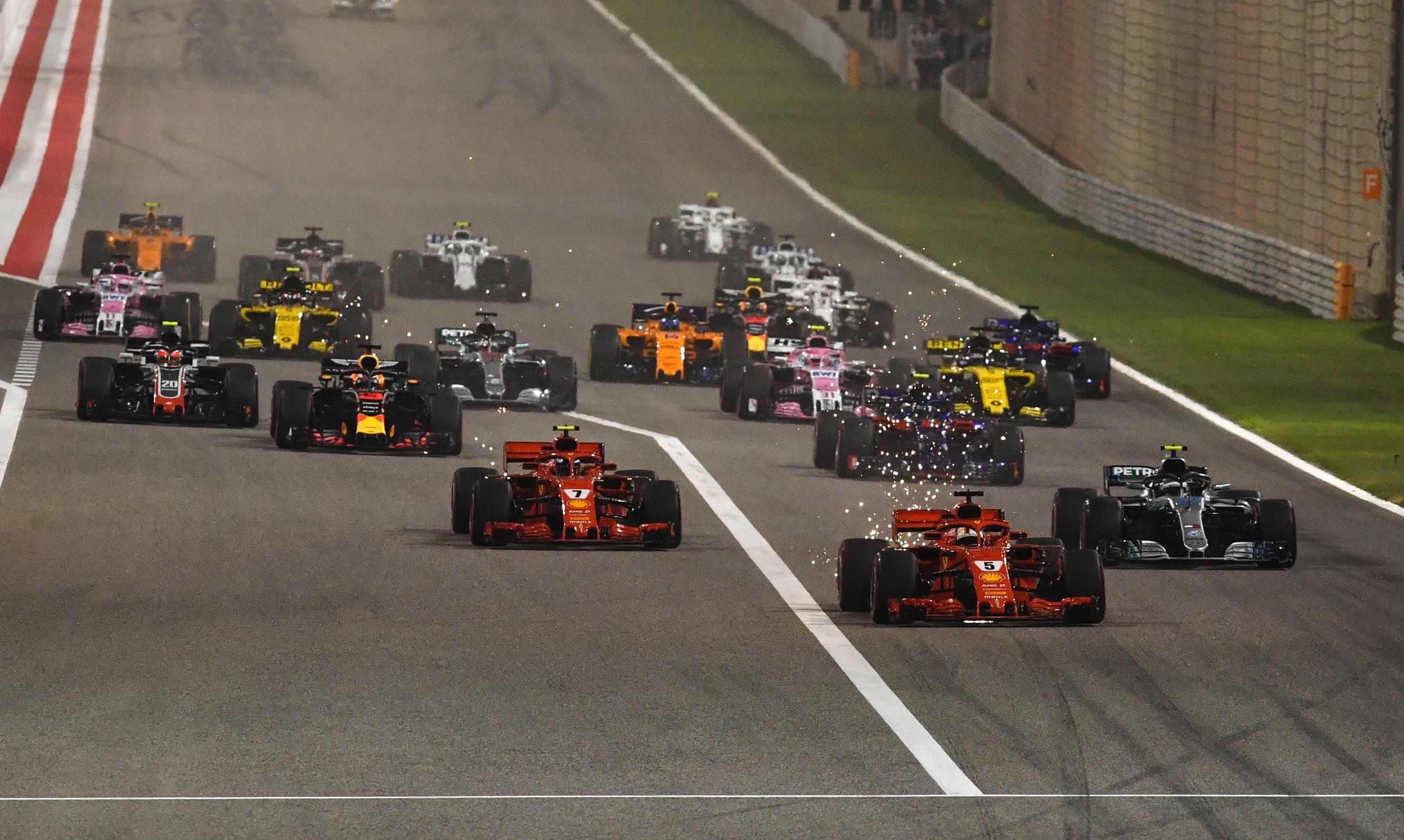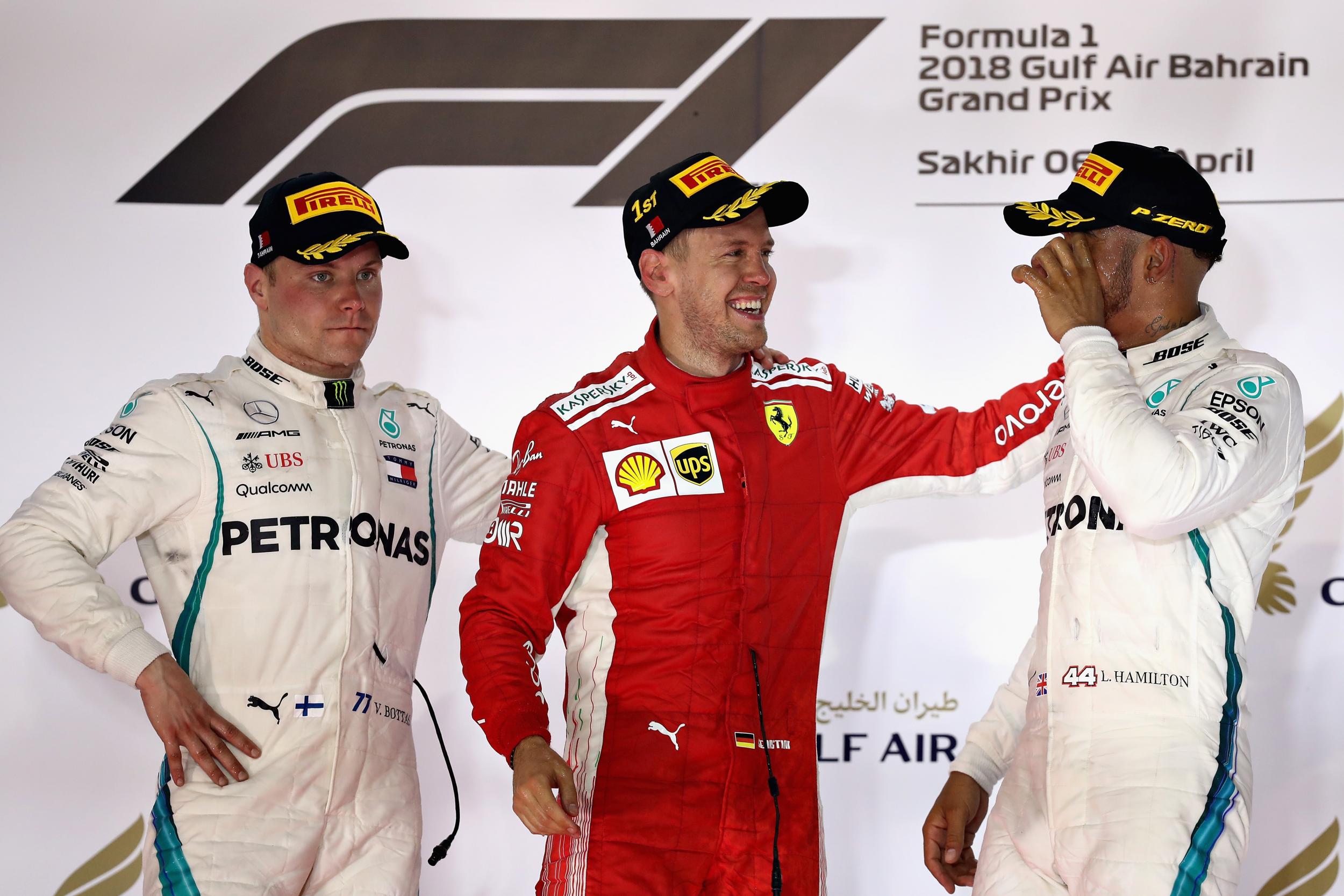Lewis Hamilton hoping to make the little things work for him in China as he looks to bridge gap to Sebastian Vettel
Hamilton finished behind the German for a second successive race and the Brit is determined to redress the balance next time out

Lewis Hamilton says he is going to China this weekend determined to spend every pound available to him, because in Formula 1 these days, especially at the elevated level of teams such as Ferrari and Mercedes, little things mean a lot.
Little things, such as the front-end set-up tweaks that Ferrari made ahead of the Bahrain Grand Prix which transformed their SF71H’s behaviour. Where the front end tended to wash out in time-sapping understeer in Australia, where Vettel won after Hamilton lost out to a Safety Car intervention, now it went where the four-time champion pointed it. And his confidence grew accordingly.
“I think it’s always a combination of things,” he said. “You try to put so many things together and sometimes you succeed more than other times. I think probably the circuit came our way. I think mostly the fact I had a better feel with the car, after we worked on the set-up, helped us to extract more. It was more consistent on one lap but also in the race. So, I felt just healthier and more in control. So, as I said, how much they [Mercedes] struggled, I don’t know. I think they looked pretty handy at the end of the stints, at least, and in qualifying the gap wasn’t massive. So, I think overall it’s been close but obviously, it’s good to be just ahead.”
Little things, like the helmet radio problem that Hamilton suffered, which meant that while he could usually hear his crew, at crucial moments sometimes they could not hear him.
“It meant that I wasn’t always sure what I should be doing,” Hamilton said. “Whether I should be pushing hard to try and catch Sebastian, or conserving my engine and tyres. Obviously, there’s turbulence in the car, that’s what they could hear rather than my voice. So, that’s an area we need to improve – but it’s not always the case. Just must have been something busted this weekend.”
In the modern era, where engineers at the track and thousands of miles away at the factory ‘ride’ with their driver, such things are critical. As is the amount of information imparted to the man in the cockpit, who is already pretty busy.
Little things, like communication. Both Hamilton who finished third, 6.4s adrift of Vettel after starting ninth, and Mercedes team-mate Valtteri Bottas, whose valiant late challenge saw him cross the finish line six-tenths behind the Ferrari, stressed that Mercedes need to enhance theirs. It seems to have worked pretty well for the past three seasons of dominance, but there’s nothing like competition and pressure to expose cracks. That’s F1 in a nutshell. What worked for you yesterday need not do so tomorrow, and you are constantly on your mettle to evolve.
As Vettel looked ahead to this weekend’s race in China, Hamilton was looking back as he analysed why he didn’t win in Australia or Bahrain.

“I had more confidence in the car, and better feel,” Vettel was saying. “I don’t know how to explain the best way but if you have more confidence and the car’s responding to your input, then ultimately you go faster because you know what to expect and you can anticipate, and overall you are happier. I think that’s the main step that we did for this weekend, working on the set-up. Now Shanghai’s a completely different course, with different conditions. Usually it’s quite a bit cooler there. So, we’ll see when we get there – but yeah, it’s a tricky one to get everything right. The set-up again will be crucial for us. It seems a bit more difficult to get into the window but if we do like this weekend, and we find the sweet spot, then I’m pretty confident that we can do well there as well.”
Hamilton, meanwhile, was drawing an analogy with spending, when assessing Mercedes’ performance in both of the opening races. “It’s like, if I had £100 to spend in Australia, by the time I had finished my first stint there I still had £20 in my pocket when, looking back, I should have spent it all. If I had, we wouldn’t have lost out under the Safety Car.
“And here, because of the communications problems, I didn’t spend to the maximum. Getting precise information is very important.”

He said that he and his engineers will sit down and analyse the way in which they were communicating in the last two races, because things are so tight at the top between Mercedes and Ferrari that you simply cannot afford not to get your ‘expenditure’ right.
He also suggested that Mercedes need to work more closely to get their strategy right, meaning that everybody concerned has to have the same understanding of what has got to be achieved at a given point of a race. That when you are out there in the cockpit, sweating profusely in heat so intense that you are “fighting for your life”, it can be difficult for drivers to deliver precisely when the engineers demand a specific lap time from them. They have a read-out on their steering wheels, and know the delta they have to keep to at various points, but it still entails deft visual juggling when you’re driving at 200 mph.
He has said several times that the real pattern of 2018 won’t emerge until the first four or so races have been run, but gave himself and his crew a simple message on Sunday evening in Bahrain, as they headed off to China: “It’s very frustrating when you end a race with money in your pocket, when you haven’t spent all that you’ve got. I’m 17 points behind Sebastian, and I can’t afford to fall any further behind.”
Join our commenting forum
Join thought-provoking conversations, follow other Independent readers and see their replies
Comments